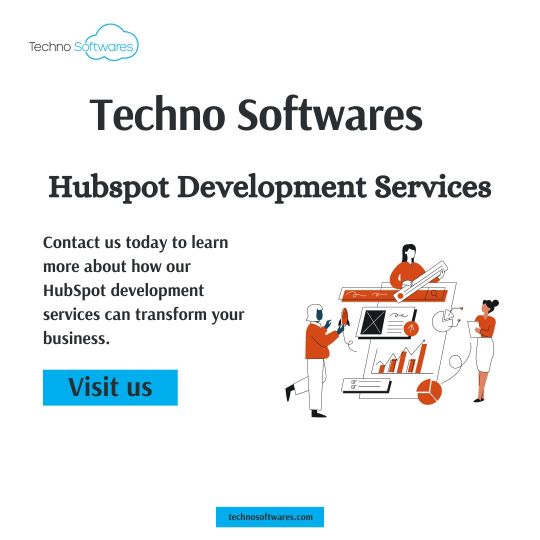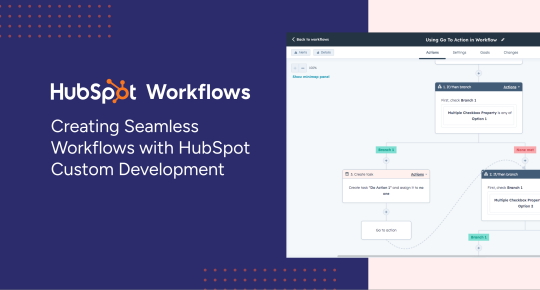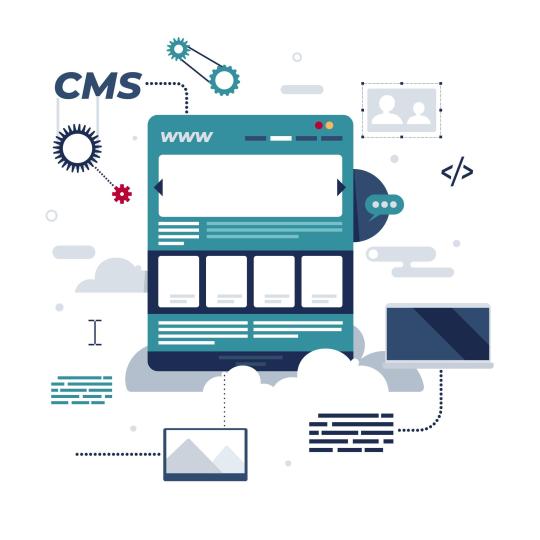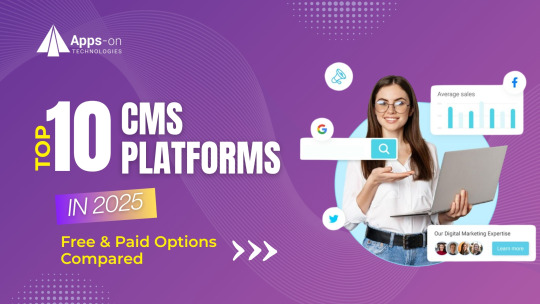#hubspot cms developer
Explore tagged Tumblr posts
Text
Why Hiring a HubSpot CMS Developer is the Smart Choice for Your Business
In today’s competitive business environment, having a strong digital presence is essential for success. A key component of achieving this is a well-designed and fully functional website. HubSpot CMS (Content Management System) is a powerful platform that allows businesses to build highly customized, responsive, and user-friendly websites. However, to leverage its full potential, partnering with a skilled HubSpot CMS developer can make all the difference.
What is HubSpot CMS?
HubSpot CMS is a robust platform that combines website management, marketing automation, and CRM integration into one seamless system. Unlike traditional CMS platforms, HubSpot focuses on providing tools that are tailored for marketers, allowing for effortless updates, smart content personalization, and detailed analytics.
Benefits of Hiring a HubSpot CMS Developer
1. Tailored Solutions for Your Business
Every business has unique needs, and a professional HubSpot CMS developer can create a website that aligns perfectly with your goals. From designing a visually appealing interface to implementing custom modules, they ensure your website is not just another template but a reflection of your brand.
2. Optimized Website Performance
A developer with expertise in HubSpot CMS understands the nuances of coding and optimization. They ensure your website is fast, responsive, and SEO-friendly, which directly impacts user experience and search engine rankings.
3. Seamless Integration with HubSpot Tools
One of the standout features of HubSpot CMS is its ability to integrate with other HubSpot tools, such as marketing automation and sales CRM. A skilled developer can set up these integrations smoothly, enabling you to track customer interactions, analyze data, and execute targeted campaigns effortlessly.
4. Expertise in HubSpot's Smart Content Feature
HubSpot’s smart content feature allows businesses to deliver personalized content to visitors based on their behavior, location, and other criteria. An experienced developer can implement this feature effectively, helping you engage users more effectively and drive conversions.
5. Ongoing Support and Maintenance
Websites require regular updates and maintenance to stay relevant and functional. By hiring a dedicated HubSpot CMS developer, you gain access to ongoing support, ensuring that your website remains up-to-date and performs optimally over time.
When Should You Hire a HubSpot CMS Developer?
Launching a New Website: If you’re starting from scratch, a developer can help design and build a site tailored to your needs.
Migrating to HubSpot CMS: Transitioning from another platform to HubSpot CMS can be complex. A developer ensures the process is seamless and error-free.
Customizing Your Existing Site: Need additional functionality or a design overhaul? A developer can customize your site to meet evolving business requirements.
How to Choose the Right Developer
Finding the right HubSpot CMS developer can seem daunting, but focusing on these key aspects can simplify your decision:
Experience: Look for developers with proven expertise in HubSpot CMS and a portfolio of successful projects.
HubSpot Certifications: HubSpot-certified developers have undergone rigorous training and are well-versed in the platform’s best practices.
Client Reviews and Testimonials: Positive feedback from past clients is a strong indicator of a developer’s capabilities.
Communication Skills: A good developer understands your requirements and communicates effectively throughout the project.
Final Thoughts
Hiring a HubSpot CMS developer is a strategic investment that can elevate your online presence and streamline your marketing efforts. With their expertise, you can create a website that not only looks great but also functions as a powerful tool for driving business growth.
Choose a professional developer to unlock the full potential of HubSpot CMS and give your business the digital edge it deserves.
0 notes
Text
Professional HubSpot Development Services in USA

Improve your business with our professional HubSpot development services. Our expert team customizes HubSpot solutions to improve your marketing, sales, and customer service processes. Contact us today to learn how we can help you maximize your HubSpot platform. Visit us:https://technosoftwares.com/hubspot-development/
#hubspot developers#hubspot crm development services#hubspot development#hire hubspot developers#hire hubspot developer#hubspot website development#hubspot cms developer#hubspot development services#hubspot development company#hubspot cos development
1 note
·
View note
Text

HubSpot CMS Development involves leveraging the robust features of HubSpot's platform to create responsive, customized websites. This process integrates seamless design, interactive functionalities, and user-friendly interfaces while utilizing HubSpot's tools like drag-and-drop editors, modules, and templates.
0 notes
Text

Flexbox Digital is Trusted HubSpot Solution Partner, that provide expert guidance on CRM, automation, marketing, and integrations helping your business achieve real results. Whether you need CRM setup, marketing automation, or custom integrations, our team ensures you get the most out of HubSpot. Let’s Elevate Your HubSpot Experience with Flexbox Digital: https://www.flexboxdigital.com.au/hubspot-onboarding-and-setup/
#Hubspot Solutions Partner#Hubspot Implementation Agency#Best Hubspot Partners#Hubspot Website Agency#HubSpot Web Design Agency#Hubspot Web Development Agency#HubSpot Website Development#Hubspot CMS Development#Hubspot Website Integration#Hubspot Development Services#Hubspot CMS Integrations#Hubspot CMS Migration
0 notes
Text
List of advanced HubSpot Development Companies in India for 2025
Hubpost is required for marketing automation, CRM customisation, and scalable solutions. Selecting a leading hubpost development company in India ensures implementation and seamless integrations. In this blog, we mentioned some latest hubpost Development Companies in India with expertise in HubSpot CMS, CRM, and API integrations. HubPost is a powerful tool. But getting a development and customisation. India is a hub of leading HubSpot Development Company in India for 2025, offering cost-effective, high-quality services. This firm helps businesses scale effortlessly. In this blog, we mention a List of advanced HubSpot Development Companies in India for 2025 based on these Criteria: Experience & Expertise, Range of Services, Client Portfolio & Case Studies, Customer Reviews &, etc. For more details, you can read this blog.
0 notes
Text
0 notes
Text
Creating Seamless Workflows with HubSpot Custom Development

In the fast-moving stream of the business world today, efficiency and smooth-going are the order of the day. Efficient organizations hinge on smooth workflows: tasks are completed on time, communication is good, and processes go through without hitches. HubSpot has built-in strong capabilities in the creation and execution of workflows in its powerful tools. But the real magic happens in the kingdom of custom development, to adapt these workflows to your definitive business needs. Let’s see how HubSpot custom development can help you level up workflows that drive productivity and success.
Understanding Workflows
In the business view, workflows illustrate or represent the step-by-step or stages through which tasks go from initialization to completion. These may be everything from quite easy and recurring tasks to highly complicated, multi-stepped procedures that involve various departments of companies. Efficient workflows mean tasks should flow smoothly from one stage to the next without much delay and error.
Why Custom Development?
While there are some pretty potent workflow tools that can be used out-of-the-box with HubSpot, every business out there has some special needs that just cannot be addressed by these solutions. Custom development is available to tweak, enhance, and extend the capabilities brought in by the adoption of HubSpot so you get a perfect fit for your specific needs. Be it process automation, system integration, or bespoke solution development, all this facilitates efficiency and productivity.
The Benefits of Seamless Workflows
1. Greater Efficiency: Automating routine tasks will free up your team to do higher value-added activities, reducing manual effort and the potential for errors.
2. Better Team Collaboration: Transparent, automated workflows make sure everyone knows exactly what must be done and when, helping to work better as a team.
3. Uniform Customer Experience: Automated workflows provide timely and consistent handling for every customer interaction, enhancing customer satisfaction.
4. Data-driven decisions: Smooth workflows create valuable data and insights that enable you to make knowledgeable, process-continuously-improving decisions.
Building Seamless Workflows with HubSpot Custom Development
Mapping Your Processes
Customizing Lead Management
Automating Sales Processes
Streamlining Marketing Efforts
Enhancing Customer Support
Integrating with Other Systems
Continuous Improvement
Mapping Your Processes
Before you begin designing seamless workflows, you need to map your current processes. Find the basic steps for every workflow, who is involved in it as a stakeholder or person responsible, and any interdependencies. This will give you a big-picture view of how tasks flow through your organization and where problems like bottlenecks or inefficiencies are.
Now that most of your processes are mapped out, you can begin to think about how to automate and optimize them in HubSpot.
Customizing Lead Management
Attention to lead management is indispensable for any business. At the same time, existing lead management tools in HubSpot are rather powerful. This, however, can be taken one step further with custom development.
Set up custom lead scoring models to manage leads that are most relevant for your business. You could integrate data from independent sources to fill out the leads and therefore equip your sales team with more detail.
It can also automate custom workflows for tasks like assigning leads to the proper sales representatives, considering various factors such as location or industry, or lead score.
This ensures that leads are always handled by the right person, greatly increasing the chances of conversion.
Automating Sales Processes
A sales process may involve multi-step processes and multiple engagements with prospects. Automating these processes can significantly improve efficiency and ensure that no opportunities are ever lost.
You can create such workflows using HubSpot custom development, which will be initiated by a lead’s interaction and behavior to automatically push them through the sales funnel. For instance, when a lead downloads a specific whitepaper, that lead will be sent to the subsequent stage in the funnel automatically and receive follow-up emails with relevant content based on interest.
You can even automate tasks like sending proposals, scheduling follow-up meetings, and generating contracts. This reduces the amount of manual work to be handled by your sales team and makes sure every lead gets communication appropriate in timing and relevance.
Streamlining Marketing Efforts
Another area where custom development for HubSpot may make all the difference is marketing automation. Not only that, but when you pick automation, you need to do it in a really customized way so that your marketing is, thereafter, well-targeted and actually effective.
For instance, you could develop custom workflows that trigger different types of marketing activities within your system by the different kinds of user behavior. You could then set it to send an automated email with more information about that product to a visitor who had been to one single product or service page three times and had repeatedly visited it.
It also enables you to use custom development to integrate HubSpot with other marketing tools and platforms to let them all work together across your marketing efforts. The customer has a seamless experience, and the campaigns run to their fullest effect.
Enhancing Customer Support
Knowing that you’re providing really great customer support is important for both customer satisfaction and loyalty. Create custom workflows in HubSpot to help your team stay organized and guarantee that no customer question goes unanswered.
You can further automate workflows to assign support tickets to relevant employees depending on the kind of queries received. For instance, router technical issues could be directed to your IT support staff and bills to your finance team.
It can also automate follow-up communications, ensuring that customers are updated in a timely manner on the status of their inquiries. This improvement in efficiency also enhances customer experience.
Integrating with Other Systems
Probably one of the most influential things custom development in HubSpot can offer is to marry with other systems and tools that your business may be using, ensuring consistency in how data flows through systems and avoiding manual entry.
For instance, you can integrate HubSpot with an ERP to display real-time inventory levels and order history in front of your sales team, or integrate with a marketing automation platform to align your marketing and sales efforts.
Build seamless integrations that let all of your systems work in concert, providing a single view of both the customer and your operations.
Continuous Improvement
The creation of seamless workflows is a continuous improvement exercise in itself. If you periodically check your workflows, you will see how much space you have for more optimization and in so doing, come up with data-driven decisions to turn around overall productivity and efficiency.
See how your workflows are moving the needle with reports and analytics through HubSpot. With custom development, you will be able to develop advanced dashboards and reports to see exactly how the workflow is executing and where there is potentially a gap.
Conclusion
Seamless workflows mean efficiency, collaboration, and a great customer experience. Sure, the powerful tools HubSpot provides are perfect for building this, but custom development enables one to adapt those tools to your business’s needs and create those truly seamless workflows.
Now, you will be able to create those workflows for productivity and success by mapping your processes, customizing lead management, automating sales and marketing efforts, enhancing customer support, integrating with other systems, and continuously improving.
Custom HubSpot development is an investment in your business’s future. Embrace the power brought by customization and see for yourself how it can transform your operations, improve customer satisfaction, and boost your business to new heights.
Contact US
Whether you need assistance from experienced HubSpot consultants or require a seamless integration with a HubSpot development service Ohio, we are here to support your journey. Additionally, as a premier HubSpot CMS development partner, we ensure your website is optimized for success.
0 notes
Text
Step-by-Step Guide to Creating an Effective HubSpot Implementation Plan

Implementing HubSpot can significantly enhance your marketing, sales, and customer service processes. This powerful platform integrates various tools and features designed to streamline workflows, improve customer engagement, and drive growth. However, achieving a seamless transition requires a well-thought-out HubSpot Implementation Plan. Without a detailed plan, the process can become overwhelming, leading to inefficiencies and missed opportunities.
This comprehensive guide will walk you through the necessary steps, ensuring a successful implementation from start to finish. Whether you are new to HubSpot or looking to optimize your current setup, this guide will provide valuable insights and actionable strategies. The blog will cover various aspects of the implementation process, including the essential hubspot implementation checklist that will help you stay organized and on track. Additionally, we will explore the critical role of a hubspot implementation specialist in providing expert guidance and support throughout the journey. Finally, we will delve into leveraging hubspot cms features to maximize your content management capabilities and enhance your marketing efforts.
Step 1: Understanding Your Needs
The first step in creating an effective HubSpot Implementation Plan involves understanding your business needs. This phase requires a thorough assessment of your current processes, identifying areas where HubSpot can provide the most value.
Key Considerations:
Evaluate existing marketing, sales, and customer service workflows.
Identify pain points and inefficiencies.
Define specific goals for implementing HubSpot.
Step 2: Engaging a HubSpot Implementation Specialist
A hubspot implementation specialist can provide invaluable expertise during the setup process. Their experience with hubspot crm implementation and other HubSpot tools ensures that your implementation is both efficient and effective.
Benefits of Hiring a Specialist:
Customized implementation strategies tailored to your business.
Expertise in configuring and optimizing HubSpot tools.
Ongoing support and troubleshooting.
Step 3: Developing a HubSpot Implementation Checklist
A detailed hubspot implementation checklist is crucial for a structured and organized setup process. This checklist should cover all aspects of the implementation, from initial setup to final testing.
Essential Items on the Checklist:
Account and user setup.
Integration with existing tools and systems.
Customization of properties and fields.
Data migration and cleanup.
Setting up workflows and automation.
Step 4: Setting Up Your HubSpot Account
The next step in your HubSpot Implementation Plan is setting up your HubSpot account. This involves configuring your account settings, adding users, and establishing user permissions. To ensure nothing is overlooked, it is essential to refer to your hubspot setup checklist during this process.
Key Actions:
Create your HubSpot account and choose the appropriate subscription plan.
Add team members and assign roles.
Configure account settings, including branding and company information.
Step 5: Integrating HubSpot with Existing Systems
Integration is a critical component of a successful HubSpot implementation. Ensuring that HubSpot works seamlessly with your existing systems will streamline your operations and enhance data flow.
Integration Steps:
Identify systems that need integration (e.g., CRM, email, marketing automation).
Use HubSpot’s native integrations or third-party tools.
Test integrations to ensure data accuracy and functionality.

Step 6: Customizing HubSpot for Your Business
Customizing HubSpot to fit your specific business needs is essential for maximizing its potential. This involves tailoring properties, fields, and workflows to align with your processes.
Customization Actions:
Create custom properties and fields to capture relevant data.
Set up workflows and automation to streamline processes.
Customize dashboards and reports to track key metrics.
Step 7: Migrating Data to HubSpot
Data migration is a critical step in the hubspot implementation process. Ensuring that your data is accurately transferred to HubSpot will provide a solid foundation for your operations.
Data Migration Process:
Clean and prepare your data for migration.
Use HubSpot’s data import tools or engage a specialist for complex migrations.
Validate and test the migrated data to ensure accuracy.
Step 8: Leveraging HubSpot CMS Features
HubSpot offers a robust content management system (CMS) that can significantly enhance your marketing efforts. Utilizing hubspot cms features will enable you to create, manage, and optimize your content effectively.
Key CMS Features:
Drag-and-drop editor for easy content creation.
SEO tools to optimize content for search engines.
Personalization features to tailor content for different audience segments.
Step 9: Training Your Team
Training is a vital component of a successful HubSpot implementation. Ensuring that your team is proficient in using HubSpot will maximize the platform’s benefits. Partnering with a b2b hubspot agency can provide specialized training tailored to your business needs, further enhancing your team’s skills and proficiency.
Training Strategies:
Provide comprehensive training sessions for all users.
Utilize HubSpot’s extensive library of training resources and certifications.
Offer ongoing support and advanced training as needed.
Step 10: Monitoring and Optimizing Your Implementation
The final step in your HubSpot Implementation Plan involves continuous monitoring and optimization. Regularly reviewing your setup and making necessary adjustments will ensure long-term success.
Optimization Techniques:
Regularly review and update workflows and automation.
Monitor key metrics and adjust strategies as needed.
Stay updated with new HubSpot features and best practices.
Conclusion
Creating an effective HubSpot Implementation Plan requires careful planning and execution. By following the steps outlined in this guide, you can ensure a smooth and successful implementation. Engaging a b2b hubspot agency or hubspot implementation services can further enhance your implementation process, providing expert guidance and support.
For businesses looking to optimize their HubSpot setup, leveraging the expertise of a hubspot implementation specialist and utilizing the comprehensive hubspot setup checklist will be crucial. Additionally, fully utilizing hubspot cms features will enable your marketing team to create and manage content efficiently, ultimately driving better results for your business. Engaging hubspot implementation services can further enhance the process, providing expert guidance and support to ensure a smooth and successful implementation.
With a well-executed HubSpot implementation, your business will be well-equipped to streamline operations, enhance customer relationships, and achieve your marketing and sales goals.
#HubSpot Implementation Plan#HubSpot#HubSpot CMS#hubspot automation#hubspotcms#hubspot agency#hubspotcrm#HubSpot Agency in Cincinnati#HubSpot Agency in Ohio#Custom CMS Solutions#custom cms development services#custom cms development company
0 notes
Text
Best sites to hire HubSpot CMS Developers

For the content management system, HubSpot CMS is a trendy platform for customizing, building, and optimizing HubSpot CMS sites. Selecting the right HubSpot CMS Developer is crucial to an organization’s success. In this article, we will explore the best sites to hire HubSpot CMS developers.
0 notes
Text
Top 10 HubSpot CMS Development Companies
Looking for the top 10 HubSpot CMS development companies? Look no further! We've curated a list of the top companies that specialize in HubSpot CMS development. These companies have a proven track record of delivering high-quality solutions and exceptional customer service. To know in detail about the top companies click on the following link to read the full article https://www.fthemes.net/blog/top-10-hubspot-cms-development-companies

0 notes
Text
Webflow Insurance Template | Insurize Developed by TNCFlow
In the technological age, your website is often the first point of contact between your insurance business and possible customers. It needs to be clean, professional, fast, and optimized for all devices. That's where the Insurize Webflow Insurance Template, developed by TNCFlow, steps in to help you build trust, increase leads, and raise your brand online.
Insurize is a premium Webflow insurance website template created by TNCFlow, a main provider of excellent Webflow templates across industries like SaaS, real estate, medical, education, and more.
Whether you’re start a new insurance agency website or revamping your current one, Insurize offers a modern, transformations, and fast to customize idea that ticks all the boxes. In this blog, we’ll fall into everything you need to know about Insurize — from features and benefits to why it's a smart stake for insurance professionals.
Order Now ➲ Insurize Webflow Insurance Company Website Template

Who Can Buy the Insurize Webflow Template?
The Insurize Webflow template is designed to be adjustable and smooth for a wide range of users from separate professionals to large organizations. Here’s who can benefit most from buying it:
🏢 Insurance Agencies
Small to middle insurance agencies looking to build or renew their online presence can use Insurize to fast start a modern, professional website that builds trust and attracts customers.
👩💼 Independent Insurance Brokers
If you’re a separate broker or consultant offering health, life, auto, or property insurance, Insurize helps you display your services, share customer testimonials, and offer quote requests without hiring a developer.
🧑💻 Web Designers & Freelancers
Freelancers and web designers working with insurance customers can save your time and impress their customers with this fully customizable, sell focused template.
🏦 Financial Advisors & Consultants
Professionals offering financial planning, retirement advice, or insurance-related consulting can use Insurize to position each other as credible, friendly experts in their field.
📈 Marketing & Creative Agencies
Digital marketing or creative agencies performing insurance and finance customers can buy Insurize to streamline website making while maintaining high design measures..
🏥 Health & Travel Insurance Providers
Specialized insurance providers — whether in health, medical travel, or expat insurance — can use the template’s flexible layout to promote niche services effectively.
🧑🎓 Students & Beginners Learning Webflow
Even students or starts looking to practice Webflow or build mock websites in the insurance niche can buy Insurize as a starting point.
Key Features of Insurize
Insurize isn’t just beautiful — it’s functional, scalable, and packed with everything you need for a successful insurance website. Here are the standout features:
✅ Clean, Modern Design
The template boasts a polished, trustworthy layout with a professional color scheme and sleek typography — perfect for the insurance industry, where credibility is key.
✅ Fully Responsive Design
Insurize is 100% responsive, meaning your site will look and perform perfectly on desktops, tablets, and smartphones. customers can easily browse services or request quotes from any device.
✅ CMS Integration
The template uses Webflow’s powerful CMS (Content Management System), allowing you to manage blog posts, testimonials, services, FAQs, and more with ease — no need for coding or external platforms.
✅ Service Pages
Highlight your insurance offerings — whether it’s life, health, auto, travel, or commercial insurance — with dedicated service pages that can be customized or duplicated as needed.
✅ Quote Request Forms
Pre-designed and optimized contact and quote request forms help you capture leads efficiently. Integrated with Webflow Forms, you can also connect them to tools like Zapier, Mailchimp, or HubSpot.
✅ SEO Optimized
The template is built with SEO best practices in mind — fast loading speed, clean semantic HTML, mobile optimization, meta tag setup, and heading structure — so your site can rank better on search engines.
✅ Blog & Educational Content
An informative blog section allows you to share insights, tips, and policy updates, building authority and improving organic traffic.
✅ Testimonials & Reviews Section
Social proof is a big trust factor in the insurance world. Showcase client feedback, reviews, and success stories to establish credibility and increase conversions.
✅ Contact & Location Integration
The template includes a beautiful contact section and Google Maps integration to help customers find your physical office or get in touch quickly.
✅ Global Style Guide
With consistent fonts, colors, and spacing, Insurize comes with a well-defined style guide so you can maintain visual consistency throughout the site.
✅ Speed-Optimized
TNCFlow has carefully optimized Insurize for fast page loading and smooth navigation — critical for user experience and SEO.
Benefits of Using Insurize
Buying in the Insurize Webflow template can save you time, money, and development headaches. Here’s how:
⚡ Faster Time to Launch
No need to start from scratch. With Insurize, you can have your insurance agency website live in a matter of days, not weeks.
🧩 Full Customization Control
Unlike WordPress themes, Webflow and Insurize give you complete control over every element part colors, layout, fonts, animations without needing to touch any code.
🔒 Secure & Scalable Hosting
Webflow’s hosting is built on Amazon Web Services (AWS), ensuring lightning quick speeds, uptime reliability, and enterprise-level security for your insurance website.
🧠 User-Friendly CMS
Even if you're not tech-savvy, maintaining your content is a breeze. Add or update blog posts, services, or team members in minutes using Webflow CMS.
💬 Professional First Impression
Your website is often the first impression a Possible customer has of your business. Insurize helps you present a trustworthy, modern, and reliable brand image from the start.
💡 Built by Industry Experts
TNCFlow experts in Webflow development and understands what high-converting, industry-specific templates need. Insurize is thoughtfully designed for the insurance sector’s unique requirements.
Why Buy Insurize from TNCFlow?
There are many Webflow templates published there, but Insurize provides fresh design. Here’s why you should choose TNCFlow:
✅ Industry Expertise
TNCFlow has a track record of developing best version Webflow templates across industries with a focus on fast speed, UX, and sell.
✅ Quality Assurance
Each template is thoroughly tested for reactivity, SEO performance, and browser unity.
✅ Ongoing Support
TNCFlow provides continuous support and documentation, so you’re never left in alone.
✅ One-Time Payment
Buy it once and use it for life — no monthly fees, no subscriptions, and no extra costs.
✅ Lifetime Updates
When you buy Insurize, you get access to any future updates or progress at no extra cost.
Who Should Use Insurize?
Insurize is best for:
New insurance startups needing a fast and professional online presence
Established agencies looking to redesigning or update their site
Freelancers and consultants in the financial or insurance space
Web designers or developers building sites for insurance customers
Marketing agencies helping customers in the finance/insurance industries
Whether you’re a separate insurance broker or a growing agency, Insurize scales with your business.
Final Thoughts
If you’re looking for a Webflow insurance template that blends skill, flexibility, and high performance — Insurize by TNCFlow is a first choice.
It’s clean, modern, sell optimized, and incredibly simple to manage. And with Webflow’s visual builder, you retain full creative freedom without the tension of traditional development.Your insurance customers are looking for trust, fast, and clarity — and your website should reflect that. With Insurize, you get a amazing and functional online presence that builds confidence and generates leads.
1 note
·
View note
Text
Selecting the Best Content Management System for Your Business Website

The content management system (CMS) powering your business website significantly impacts its capabilities, performance, and ease of use over time. With web developers today spoiled for choice between open source CMS options like WordPress and Drupal or proprietary systems like Adobe Experience Manager and HubSpot, the evaluation process proves daunting for companies. When embarking on a website project or redesign, stay focused on your organization’s unique needs, resources, and business priorities when weighing the pros and cons of various CMS platforms.
First, take time to thoroughly consider what types of content, assets, and functionality matter most to your brand and audience day to day. For example, blogging, news publishing and journalist teams center heavily around text creation and workflow. Multimedia creatives and marketers, however, need robust digital asset management and organization. Let your website designer align technology recommendations to your primary content focus and goals.
Also, realistically assess the technical skills and resources your team brings to the table for effectively managing the CMS if opting for an open source platform like Drupal or Joomla. While extremely powerful, these systems demand solid web development expertise to customize, which represents an added cost. Simpler tools like WordPress may suffice.
Evaluate prospective CMS options in regards to built-in workflow capabilities as well, like approvals, permissions, and multi-channel content publishing abilities out of the box. Understanding your collaborators’ needs shaping real-world content operations keeps implementations smoother. Select CMS tools accordingly.
Importantly, test and ensure any short-listed CMS easily integrates with your other vital back-end systems like ecommerce engines, CRM platforms, marketing automation tools, etc. An experienced website designer already familiar with related integrations will recognize any limitations or hurdles.
Lastly, the ultimate CMS decision should effectively balance your desired functionality wishlist, readiness of staff resources to leverage the platform fully, and sufficient ease of use for non-technical folks who will actually manage content. With an expert website designer guiding the process holistically using these criteria, your ideal CMS solution match for current and future needs emerges.
2 notes
·
View notes
Text

HubSpot CMS Development Effective Strategies & Solutions.
Discover the potential of HubSpot CMS development. Craft engaging websites with our specialized services. Elevate your online presence with optimized designs, seamless functionality, and expert strategies
0 notes
Text

Need custom integrations, advanced CRM automation or a high-performing HubSpot CMS website? As a Certified HubSpot Development Partner, we specialize in building tailored solutions that streamline your processes, enhance automation, and boost conversions. Contact us for build custom features and optimize your HubSpot environment for maximum efficiency: https://www.flexboxdigital.com.au/hubspot-onboarding-and-setup/
#Hubspot Solutions Partner#Hubspot Implementation Agency#Best Hubspot Partners#Hubspot Website Agency#HubSpot Web Design Agency#Hubspot Web Development Agency#HubSpot Website Development#Hubspot CMS Development#Hubspot Website Integration#Hubspot Development Services#Hubspot CMS Integrations#Hubspot CMS Migration
0 notes
Text
Top 10 CMS Platforms in 2025 (Free & Paid Options Compared)
In our fast-paced digital world, picking the right content management system (CMS) can truly shape your online presence. Whether you're starting a blog, creating a corporate website, or expanding an eCommerce business, the platform you select affects everything from performance to SEO. To make your choice easier, we've put together a list of the Best CMS Platforms 2025—featuring both free and paid options, so you can confidently choose what's best for your business.

1. WordPress (Free & Paid)
WordPress continues to lead the pack, thanks to its incredible flexibility, extensive plugin ecosystem, and a vibrant global community. It powers more than 40% of all websites around the globe, making it a fantastic choice for everything from personal blogs to business websites and even online shops using WooCommerce.
Strengths: Easy to use, vast library of themes and plugins
Weaknesses: Can be prone to vulnerabilities if not properly maintained
2. Webflow (Paid)
Webflow gives you incredible design flexibility through its visual editor and generates clean code. It’s an ideal choice for designers who want complete control without having to write any code, yet it still allows for development-level customization.
Strengths: User-friendly no-code interface, robust hosting
Weaknesses: Steeper learning curve for beginners
3. Wix (Free & Paid)
Wix is really popular because it’s super user-friendly and features a handy drag-and-drop builder.
It works best for small businesses, personal portfolios, and creating quick landing pages.
Strengths: Easy for beginners, plenty of templates available.
Weaknesses: Not very flexible for larger websites.
4. Joomla (Free)
Joomla is a powerful open-source content management system that's perfect for developers who want a bit more flexibility than what WordPress provides right off the bat.
Strengths: Adaptable architecture and multilingual support
Weaknesses: Smaller community, steeper learning curve
5. Drupal (Free)
If you're looking for a solid choice for large, content-rich websites, government sites, or educational institutions, Drupal is definitely worth considering. It provides extensive customization options and top-notch security features.
Strengths: Super flexible and secure.
Weaknesses: Not the best choice for beginners.
6. Shopify (Paid)
Even though Shopify is mainly known as an eCommerce platform, its CMS capabilities are pretty impressive for merchants looking to combine content creation with sales.
Strengths: Effortless integration with eCommerce
Weaknesses: Limited content management options beyond product pages
7. Ghost (Free & Paid)
If you're a blogger or publisher, Ghost might just be the perfect fit for you. It's a sleek, open-source platform that prioritizes speed and simplicity.
Strengths: It boasts a clean user interface and is all about performance.
Weaknesses: However, it does have limited plugin support when you stack it up against WordPress.
8. Squarespace (Paid)
If you're a creative or freelancer, you'll probably love Squarespace. It provides stylish templates and a comprehensive solution for both hosting and design.
Strengths: Gorgeous templates, handy built-in tools
Weaknesses: Not as customizable for those who need advanced options
9. Magento (Free & Paid – now Adobe Commerce)
Magento is an incredibly robust platform designed for large-scale eCommerce websites. Now under the Adobe umbrella, it’s built to handle complex catalogs and meet the demands of enterprise-level businesses.
Strengths: Highly scalable and packed with features
Weaknesses: It does require a solid set of technical skills to navigate effectively.
10. HubSpot CMS (Paid)
If you're a marketer, HubSpot CMS is a fantastic choice since it seamlessly integrates with their entire marketing suite. It's perfect for lead generation, content marketing, and creating experiences backed by CRM data.
Strengths: Great CRM integration, smart content features.
Weaknesses: It tends to be pricier than traditional CMS options.
Key Features to Consider in a CMS
When you're picking a CMS, keep these points in mind:
Ease of use: Can your team handle it without needing developers?
Customization: Is it possible to add your own unique features?
Security: Does it offer SSL support, backups, and user role management?
SEO tools: Are meta tags, URLs, and sitemaps easy to manage?
Community & Support: Is there help available when you run into issues?
Free and Paid CMS Comparison Table
To make your selection easier, here’s a Free and Paid CMS Comparison of the top platforms available in 2025.
CMS Platform
Free Version
Paid Plans
Best For
WordPress
Yes
Yes
Bloggers, SMBs
Webflow
No
Yes
Designers, Agencies
Wix
Yes
Yes
Beginners, Freelancers
Joomla
Yes
No
Developers, Enterprises
Drupal
Yes
No
Complex Sites, Institutions
Shopify
No
Yes
eCommerce Stores
Ghost
Yes
Yes
Publishers, Writers
Squarespace
No
Yes
Creatives, Portfolio Sites
Magento
Yes
Yes
Large eCommerce
HubSpot CMS
No
Yes
Marketers, SaaS Companies
Final Thoughts: Choosing the Right CMS
With so many choices available, it’s crucial to find a CMS that aligns with your goals, the skills of your team, and your plans for future growth. Whether you’re leaning towards a free open-source option or a powerful paid solution, there’s definitely a CMS out there for every type of business.
In the end, the best Content Management Systems for 2025 will be those that offer a great mix of flexibility, security, and user experience. Take the time to evaluate each option thoroughly and make your decision based on what you truly need—not just what’s popular.
Still curious about Which CMS is Best for Website Development in 2025? Start with this list and then see how the features align with your business needs. Your ideal platform is waiting for you! For more details, check out https://appsontechnologies.com/
Original Source: https://bit.ly/4eCtVJq
#Best CMS Platforms 2025#Top Content Management Systems#Free and Paid CMS Comparison#Which CMS is Best for Website Development
0 notes
Text
Automation Services Provided By Martech Panthers
Unleash Your Marketing Potential: How Martech Panthers is Empowering Businesses to Succeed
In today’s competitive business landscape, effective marketing is not just an option; it’s a necessity. Small and medium-sized enterprises (SMEs and MSMEs) often face the challenge of competing with larger corporations with vast marketing resources. But what if there was a way to level the playing field? What if you could automate your marketing efforts, streamline your processes, and reach your target audience with precision and impact?
Enter Martech Panthers, a dynamic and innovative marketing technology company dedicated to helping businesses of all sizes unlock their full marketing potential. Based in Pune, Maharashtra, Martech Panthers is a one-stop shop for a comprehensive suite of marketing automation services. They understand the unique challenges faced by SMEs and MSMEs and offer tailored solutions to help them thrive in the digital age.
Your Partner in Growth
Martech Panthers is more than just a service provider; they are a partner in your growth journey. Their team of experts works closely with you to understand your business goals, identify your target audience, and develop a customized marketing automation strategy that delivers results. Whether you are looking to implement a new CRM system, optimize your email marketing campaigns, or leverage the power of WhatsApp marketing, Martech Panthers has the expertise and experience to make it happen.
A Comprehensive Suite of Services
Martech Panthers offers a wide range of services designed to meet the diverse needs of their clients. Their core offerings include:
HubSpot Services: From integration and auditing to CMS and consulting, Martech Panthers helps you harness the full power of HubSpot to attract, engage, and delight your customers.
CRM Services: They offer a comprehensive range of CRM services, including implementation, onboarding, consulting, and data migration for platforms like ZOHO and ODOO.
Digital Marketing: Their digital marketing services are designed to help you reach your target audience and achieve your business objectives, with a focus on Account-Based Marketing (ABM) and LinkedIn outreach.
Web Development: Martech Panthers creates high-quality, visually appealing websites that are designed to convert visitors into customers.
Account-Based Marketing (ABM): A strategic approach for B2B companies to target and engage with key accounts.
LinkedIn Marketing and Outreach: Leverage the power of LinkedIn to connect with quality prospects and boost your sales effectiveness.
Digital Card: A modern and eco-friendly digital business card solution.
ERP+CRM Services: Unlock your business’s growth potential by implementing and managing integrated ERP and CRM solutions.
Design & Development: Craft stunning, conversion-focused websites.
The Martech Panthers Difference
What sets Martech Panthers apart is their commitment to their clients’ success. They believe that every business deserves access to the best marketing tools and technologies, and they are passionate about helping their clients achieve their goals. With a focus on innovation, collaboration, and customer satisfaction, Martech Panthers is the ideal partner for any business looking to take its marketing to the next level.
Ready to Unleash Your Marketing Potential?
If you are ready to transform your marketing and drive real results for your business, it’s time to connect with Martech Panthers. Contact them today for a free consultation and discover how they can help you achieve your marketing goals.
Contact Information:
Phone: +91–976–291–0165
Website: https://martechpanthers.com/
Email: [email protected]
Address: Aundh, Pune, Maharashtra
1 note
·
View note